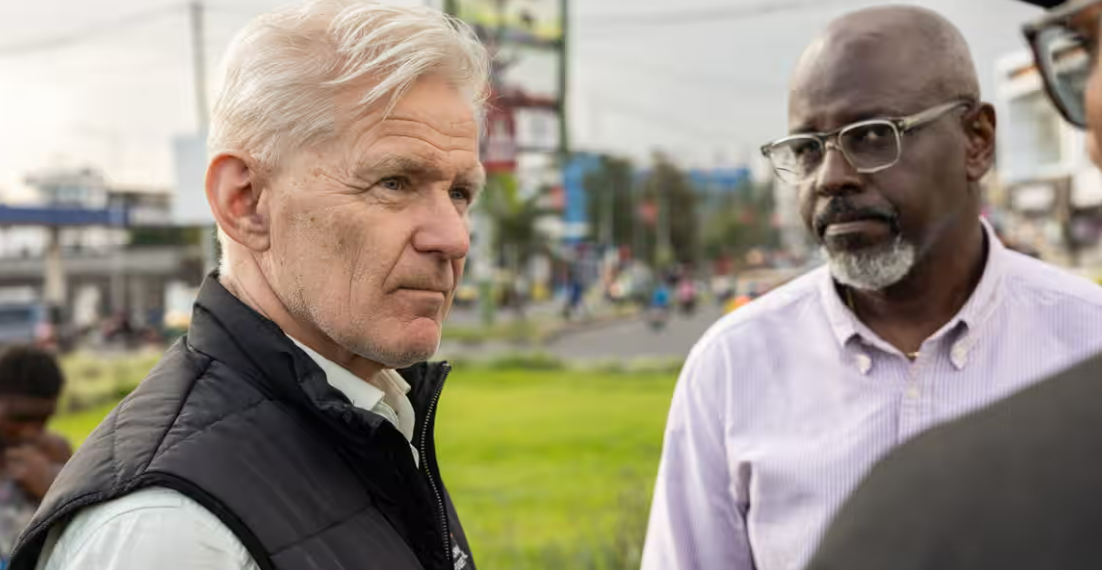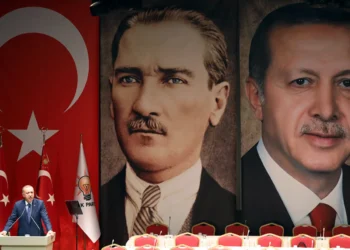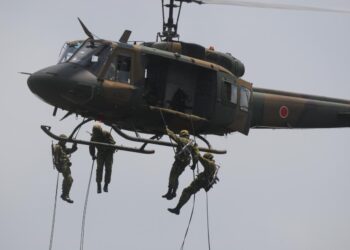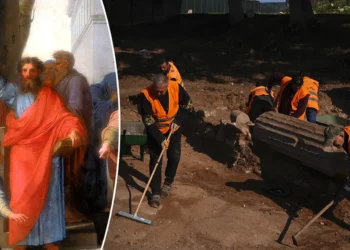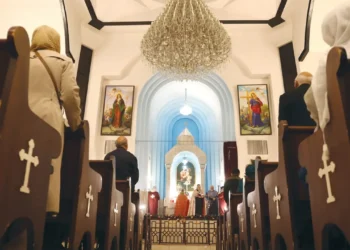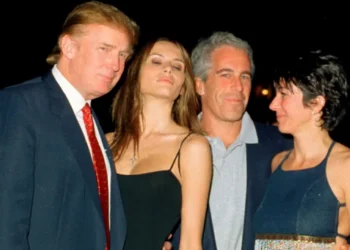KINSHASA (Realist English). World leaders have been accused of turning their backs on one of the world’s most severe humanitarian crises, as violence intensifies in the Democratic Republic of the Congo (DRC). In an interview with The Guardian, Jan Egeland, Secretary General of the Norwegian Refugee Council (NRC), said the global response to the conflict in eastern Congo was marked by “shameful neglect” and driven by rising nationalism in Western countries.
Speaking after visiting displacement camps near Goma, Egeland described appalling conditions, including overcrowded shelters and overflowing latrines. “I saw 25 people sleeping in a single classroom. Every morning, they drag their few belongings outside so children can use it for school, then return at night to sleep. It’s really subhuman,” he said.
Over 1.2 million people have fled their homes in North and South Kivu provinces as M23 rebels — a group backed by Rwanda, according to UN findings — continue to advance. The city of Goma, capital of North Kivu, has become a focal point of displacement.
Egeland warned that humanitarian agencies are struggling to respond due to sharp aid cuts, delayed payments, and donor fatigue. In particular, he blamed recent US funding freezes, initiated under Donald Trump, for stalling vital projects. “Even approved programmes have not received funding. At a time of unprecedented need, the money isn’t coming,” he said.
While some displaced communities have returned home to areas now under M23 control, Egeland stressed that aid alone is not enough. A political settlement and direct financial assistance — especially cash support — are essential to help families rebuild.
Why it matters:
- The conflict with M23 reignited in 2022, but international focus remains limited.
- UN figures estimate over 7 million people are now displaced across DRC — the highest number in the country’s history.
- Humanitarian actors warn of an impending catastrophe if international donors do not step up quickly.
The worsening crisis in eastern Congo highlights a troubling global trend: when conflicts fall out of the geopolitical spotlight, so too does international responsibility. Aid cuts, coupled with rising isolationism in the West, leave millions without protection or support. Without sustained attention — and funding — the human cost will continue to grow.
The M23 movement briefly seized Goma in 2012 before being repelled. Its resurgence underscores persistent instability in the region and the failure of earlier peace accords to address root causes. Regional tensions, especially with Rwanda, remain a key obstacle to long-term peace.


